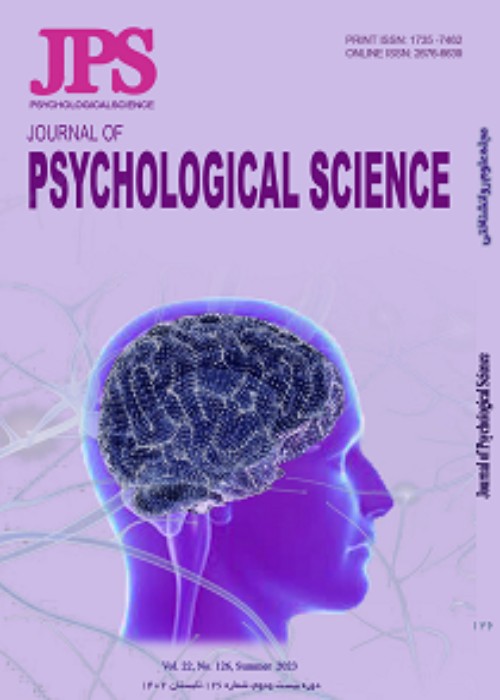Comparing the effectiveness of choice theory and transactional analysis on girls students' academic procrastination
One of the most common problems at different levels of education, especially during adolescence, is academic procrastination. Procrastination is one of the most important causes of students' failure to learn and achieve academic progress. Educational interventions based on choice theory and Transactional Analysis are two different types of interventions that emphasize on internal and interpersonal factors, respectively, and there is a comparison of their effectiveness on academic procrastination of girl's students in the research.
The present study was conducted with the aim of comparing the effectiveness of education based on choice theory and transactional analysis on academic procrastination of girl's students.
The method of the current research was a semi-experimental pre-test-post-test type with a control group and a two-month follow-up. The statistical population of the research included all ninth grade girl's students of Kuhdasht city in the academic year of 2018-2019, 45 of whom were selected by multi-stage cluster sampling method, and they were randomly replaced in three groups of 15 people (two experimental groups: Choice Theory and Transactional Analysis and a control group). In order to collect data, the academic procrastination assessment scale - student version (Solomon & Rothblum, 1984) was used. Also, educational programs based on choice theory (Nikbakht et al., 2014; Glasser, 1999) and based on transactional analysis (Stewart & Joines, 2009) were implemented in eight sessions on the first and second experimental groups, respectively. Also, the research data were analyzed using the analysis of variance test with repeated measurements using SPSS-23 software.
The findings showed that both education based on choice theory and transactional analysis (with effect sizes of 0.870 and 0.721, respectively) had a significant and stable effect on the academic procrastination of ninth grade girl's students (P≥0.001). Also, the results of the comparison of interventions in Benferroni's post hoc test also showed that the effectiveness of education based on the choice theory on reducing academic procrastination was greater than the interaction analysis (P≥ 0.001).
According to the obtained results, it seems that the educational interventions based on the choice theory and transactional analysis were effective in reducing the academic procrastination of girl's students, But the education program based on the choice theory is more effective because of increasing academic self-confidence and improving students' metacognitive skills, for this reason, it is suggested that school counselors use this educational method more to reduce students' academic procrastination.
- حق عضویت دریافتی صرف حمایت از نشریات عضو و نگهداری، تکمیل و توسعه مگیران میشود.
- پرداخت حق اشتراک و دانلود مقالات اجازه بازنشر آن در سایر رسانههای چاپی و دیجیتال را به کاربر نمیدهد.



